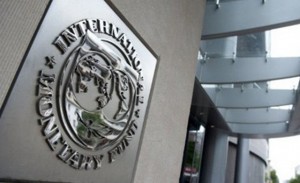
(AFP Photo)
Minister of Investment Osama Salah said Monday during a recent conference hosted by the investment bank EFG Hermes in Dubai, that he requested during a recent meeting held with Mohamed Bin Rashid, the crown prince of Dubai that the United Arab Emirates reactivate its $3bn aid package to Egypt. This would include $1bn in loans for small scale development projects, and $2bn in grants and Central Bank deposits.
The move came as the government sought to insure its foreign currency reserves, which had fallen below $14bn.
A representative from Egypt’s Central Bank stated that the Bank would rely on grants and foreign loans in order to raise Egypt’s foreign currency reserve rates to EGP 19bn by this June, and then to $22.5bn by the end of the 2013-2014 financial year. This would be done in order to help secure Egypt’s pending $4.8bn International Monetary Fund (IMF) loan.
He added that achieving a trade balance was not currently in Egypt’s interests, as the country’s imports were currently much higher than its exports.
Although he acknowledged that loans are not a true representation of a country’s reserves, he said that taking these loans would help postpone the issue long enough to allow Egypt to achieve real economic recovery. The establishment of a payment surplus he said, would be a true example of Egypt re-building its foreign currency reserves. This would occur he said, with an increase in production and investment, and an evening out of Egypt’s trade balance.
Salih added that Egypt’s payment balance deficit had grown throughout the 2011-2012 fiscal year to $11.3bn, compared to $9.8bn during the 2010-2011 fiscal year, a total of $21.1bn over the last two years. This reflects the Central Bank’s diminishing international net reserves.




